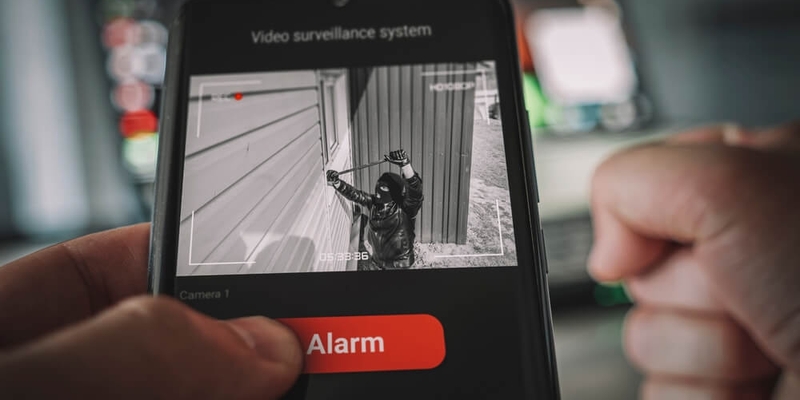
If you are not redirected within 30 seconds, please click here to continue.
Samedi: 10h – 16h HAE

If you are not redirected within 30 seconds, please click here to continue.
If you are not redirected within 30 seconds, please click here to continue.
It’s Blackout Date Season: What to Know Before Booking That Trip

As more Canadians begin planning trips for the first time post-COVID-19 lockdown, many may forget to consider seasonal travel trends when planning their itinerary. Every year, select dates prove to be the most popular days for travel. These dates are known as blackout dates, and it’s important to be aware of when they typically occur, as they dictate how much your trip will cost.
Since the Government of Canada lifted its advisory against non-essential international travel for fully vaccinated residents, a travel boom is not out of the question. However, the recent Omicron variant is a good reason to travel with caution and stay up to date on your destination’s public health requirements.
Before you book your winter trip, be mindful of the blackout dates that may be in place with your airline or accommodations — and stay safe.
What are blackout dates, and why do they exist?
Blackout dates are travel dates that “blackout” any promotions, vouchers, or deals put in place by an airline or hotel and exist because of the high demand for services. Airlines and hotels may have promotional discounts throughout the year as an incentive to travel or stay with them. However, these deals are unavailable during blackout dates, making flight prices or accommodations more costly. Although these dates prevent travellers from saving on flights, travel credit cardholders do have the option to pay with points.
“Blackout dates only apply to sales where people are paying cash. There are no blackout dates when you pay with your points. That said, blackout dates coincide with the most popular dates, so expect those times to have higher cash and point prices,” says Barry Choi, Toronto-based Personal Finance and Travel Expert in a recent e-interview. “Points are used as a currency, and you could use your points for any redemption; it might just cost you more points if the hotel or airline has upped their prices during busy seasons.”
Loyalty programs typically have a dollar amount associated with the redemption of their points. Often, this redemption value can vary based on whether the members choose to redeem for travel, merchandise, or cash-equivalent options, such as gift cards. Travel options usually provide the best value, often equalling $0.01 or more per point, depending on the program. Therefore, if you were to purchase a $500 flight during a promotion through a loyalty program like Scene+ Travel, it would cost around 50,000 travel points. That same flight might skyrocket to $1,000 during a blackout period and would therefore cost 100,000 points.
When do blackout dates typically take effect?
Generally, the most common blackout dates occur during peak travel seasons and holidays. This includes the week before Christmas, Thanksgiving weekend, New Year’s Eve, and New Year’s Day. However, blackout dates can also be set for spring break, Easter weekend, and some summer months if promotions are present. Some airlines also choose their blackout dates based on school year calendars or when families with children would normally book trips. It may be worth downloading a current calendar from the Ministry of Education for reference.
How to identify blackout dates when booking your trip
Regardless of what dates you end up travelling, securing a suitable travel insurance policy before you take off is essential. Protecting yourself or your family against an unexpected and costly medical emergency or even a trip cancellation is well worth the investment. That way, when you’re on the lookout for blackout dates, you won’t have any added financial stress looming over you.
Don't waste time calling around for travel insurance
Use Rates.ca to shop around, and compare multiple quotes at the same time.
Finding the best travel insurance coverage has never been so easy!
When it comes to figuring out when an airline’s blackout dates occur, they’re usually built into the backend of a pre-existing promotion. If you manually search for the dates you hope to travel, you’ll notice that some days will have lower prices than others. Dates that blackout a current promotion will be that airline’s blackout dates. However, there is a way to see a comprehensive overview and compare flight prices around your desired departure date.
“Most airlines have an option to view prices throughout the entire month, so you can quickly figure out which dates are cheaper,” says Choi.
For the most part, airlines and hotels have similar blackout dates, but some hotels, for example, offer larger discounts when their promotions are active. “Not every hotel has to participate in a promotion. That’s why you’ll see language such as up to 30% off at participating hotels. Some hotels may only offer 5% off, while others may not offer anything at all,” Choi says. So, if you hear of a promotion around or right before blackout date season, it’s always best to check directly with the company.
“No blackout dates” might mean limited availability
If an airline advertises a “no blackout date” policy, they’ll likely make up for that by limiting the number of award seats they leave available on a flight. These seats can fill up quickly, and for travellers looking to redeem points, this can mean one of two things: paying more points, so the airline makes an exception — or paying cash. Be wary of certain claims, as there’s often a catch.
Planning around blackout dates
Because blackout dates are built into promotions before they take effect, booking in advance won’t save you from higher price points if you choose to travel on those days. But it’s still possible to plan an affordable trip before the new year.
Fortunately, if you purchase a flight with a credit card that earns travel points — on a blackout date or not — you’ll earn points. So, even if you bear the regular price, you will have points to spend in the future.
However, most travellers opt for changing their travel dates. For example, say you plan your trip on the last day of a promotional period before the holidays or just outside of school year breaks. Even adjusting your travel dates by one day could cover the cost of one more night’s stay at a hotel.
“If you can move your dates to avoid any blackout dates, then you can take advantage of deals. Alternatively, using your points instead of paying cash during any blackout periods could help you offset your costs,” says Choi.
Compare the best credit cards on Rates.ca
Find the best credit card for your lifestyle today!
Get money-saving tips in your inbox.
Stay on top of personal finance tips from our money experts!










